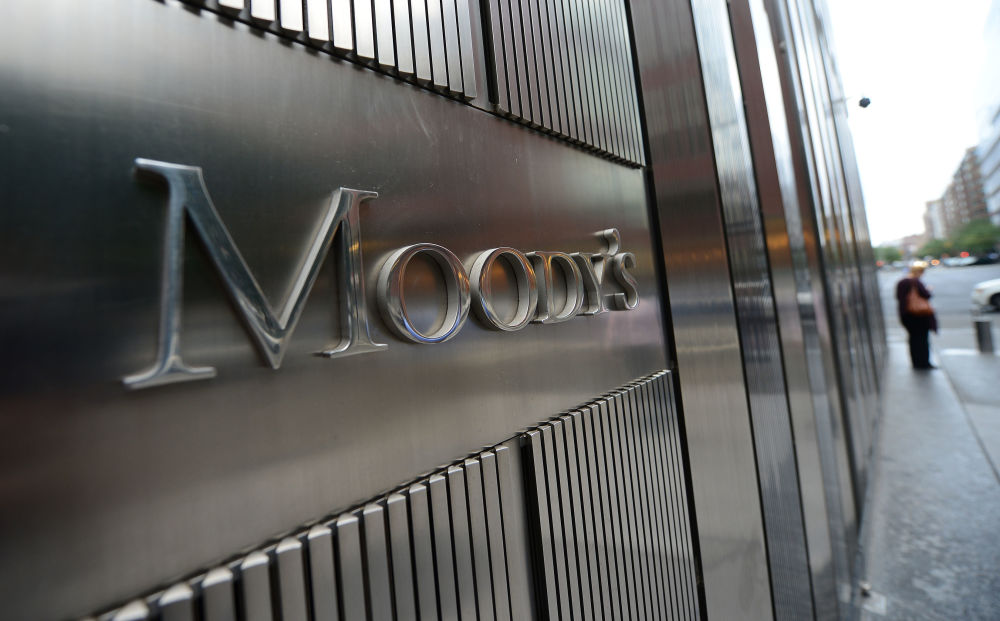
SINGAPORE: Moody’s Investors Service has taken rating actions on 11 Indian banks following sovereign downgrade.
Rating action has been taken on following banks: Bank of Baroda (BOB), Bank of India (BOI), Canara Bank (Canara), Central Bank of India (CBI), Export-Import Bank of India (EXIM India), HDFC Bank Limited (HDFC Bank), Indian Overseas Bank (IOB), IndusInd Bank Limited (IndusInd), Punjab National Bank (PNB), State Bank of India (SBI) and Union Bank of India (UBI).
Moody’s has downgraded the long-term local and foreign currency deposit ratings of HDFC Bank and SBI to Baa3 from Baa2, and the long-term issuer rating of EXIM India to Baa3 from Baa2. Moody’s has maintained their rating outlooks as negative. The deposit ratings of these banks are at the same level as India’s Baa3 sovereign rating. Consequently, Moody’s has downgraded HDFC Bank’s Baseline Credit Assessment (BCA) to baa3 from baa2.
Moody’s has placed the Baa3 long-term local and foreign currency deposit ratings of BOB, BOI, Canara and UBI and their ba3 BCAs under review for downgrade.
Moody’s has downgraded IndusInd’s long-term local and foreign currency deposit ratings to Ba1 from Baa3 and its BCA to ba2 from ba1. The rating outlook is negative.
Moody’s has affirmed PNB’s long-term local and foreign currency deposit ratings at Ba1 and its BCA at b1. The rating outlook of PNB is changed to stable from positive.
And finally, in the case of CBI and IOB, Moody’s has affirmed their long-term local and foreign currency deposit ratings at Ba2 and their BCAs at b2. The rating outlook of these issuers is maintained as stable.
The Indian banking sector has been affected given the disruptions to India’s economic activity from the coronavirus outbreak, which is weakening borrowers’ credit profiles. Moody’s regards the coronavirus outbreak as a social risk under its environmental, social and governance (ESG) framework, given the substantial implications for public health and safety.
Disruptions from the coronavirus outbreak will worsen the economic slowdown in India that has been underway in the past year and will accelerate a deterioration in the banks’ asset quality and profitability. Stimulus measures announced by the Indian government and the RBI since the start of the outbreak will help mitigate some of the credit pressures, but the longer and broader the economic slowdown, the more these banks will face asset quality and profitability issues. At the same time, heightened liquidity stress at non-bank financial institutions will pose a risk to the stability of the broad financial system, given banks’ large direct exposures to these entities.
Moody’s expects the standalone credit profiles or BCAs of most rated public sector banks (PSBs) to deteriorate as the economic shock will strain their already weak solvency. Also, in the absence of external capital support from the Indian government, Moody’s expects the capitalization of the PSBs to deteriorate.
Despite the near-term asset quality, profitability and capital strain, Moody’s expects their funding and liquidity to remain a key credit strength.
For the private sector banks covered in this rating action, in Moody’s opinion, their asset quality and profitability will also deteriorate driven by rising loan delinquencies and defaults due to the coronavirus outbreak, which will result in an increase in credit costs. However, most rated private sector banks have better loss absorbing capacity and stronger BCAs than their PSB peers because of stronger capitalization and loan loss reserves.
Today’s action reflects the impact on the Indian banks of the breadth and severity of the economic shock, and the deterioration in credit quality it has triggered. Moody’s has maintained India’s Macro Profile, that serves as an input for the bank ratings, at Moderate.